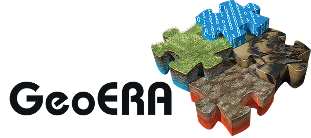Results of groundwater heat exchanger monitoring in the urbanized area of the city of Zagreb
S. Borovic (HGI-CGS), 19 July 2021
Zagreb, as other large urban areas, has significant heating and cooling demand, and it is clear that many investors opt for the installation of different types of heat pumps. Unfortunately, the number of installed heat pump systems is not known as there is no organised register and the regulations on construction are becoming more lenient, rather than stricter.
In the scope of MUSE we wanted to examine if the open loop systems cause thermal pollution in the Zagreb aquifer, which is also the source of public water supply, and if that is the case, what is the magnitude. We monitored two sites: one is a residential building, while the other is a large IKEA store with accompanying facilities. Due to significant extent, thickness and favourable hydrogeological parameters of the aquifer, our hypothesis was that we will not observe significant temperature deviations.


As can be observed from the figures, the groundwater levels and temperatures show a normal annual variation. The amplitudes are small and in accordance with the seasonal data for Zagreb alluvial aquifer. The temperature amplitude was only 2.2 °C in Veslačka, and 1.83 °C in IKEA, while the recorded amplitude in the nearby observation well of the Croatian water management authority closer to Sava River is 5.5 °C.
Since we have engaged in a small-scale pilot activity, the monitoring results are expected. However, we tested a hypothesis and confirmed it, so we can be more confident in our future assessments.
Other MUSE Posts:
- MUSE pilot area activities – RESULTS – #5 Girona
- MUSE pilot area activities – RESULTS – #4 Aarhus
- MUSE pilot area activities – RESULTS – #3 Zaragoza
- Interview with our MUSE team member from Croatia
- New MUSE leaflet about shallow geothermal energy published
- MUSE pilot area activities – RESULTS – #2 Linköping
- MUSE pilot area activities – RESULTS – #1 Ljubljana
- Brand-new MUSE results: Fact sheets on shallow geothermal energy concepts
- Explore the new MUSE YouTube channel
- MUSE co-organized the Shallow Geothermal Days 2020
- MUSE – Monitoring Closed-loop systems and Open-loop systems
- MUSE – Geothermal heat pumps, a highly dynamic market in Europe!
- MUSE and the underground urban heat island effect
- MUSE – Open-loop systems requirements & advantages
- MUSE – Web-based information systems for shallow geothermal energy
- MUSE – Closed-loop systems requirements & advantages
- MUSE results published in Energy Policy
- MUSE – Differences between deep and shallow geothermal energy
- Legal framework, procedures and policies of shallow geothermal energy use in the EU and MUSE partner countries
- BBC article about MUSE activities in Cardiff
- Pilot area activities – #14 Assessment of shallow geothermal energy resources in Warsaw agglomeration, Poland
- Pilot area activities – #13 Geophysical survey and groundwater monitoring in Brussels, Belgium
- MUSE at “EGU2020: Sharing Geoscience Online” – Free online geoscience conference
- Pilot area activities – #12 Thermal groundwater use in the urbanized area of Zagreb, Croatia
